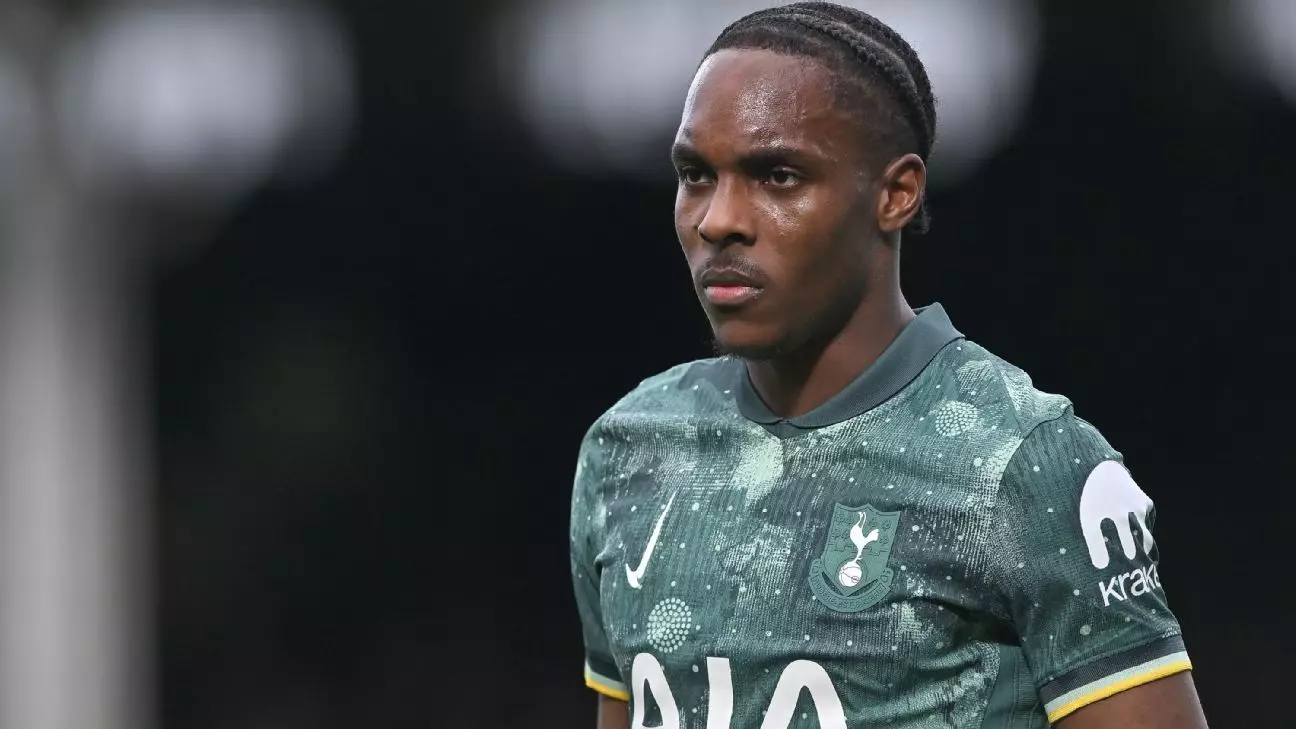The football transfer window is often a frenzy of activity, but for clubs like Bayern Munich and West Ham United, it signifies much more than just acquiring new talents or offloading existing players. It marks a pivotal moment where strategic planning, financial acumen, and foresight become the cornerstones for future successes. As clubs navigate through these turbulent waters, their decisions echo the broader implications of competitiveness in modern football.
Bayern Munich’s Bold Moves: Fostering Future Stars
Bayern Munich’s ambitions this season are apparent as they set their sights on both retaining key talents and scouting fresh prospects. Reports indicate the Bavarians hope for a permanent deal regarding Mathys Tel’s €60 million buy-clause with Tottenham Hotspur. His potential departure poses a dilemma for Bayern; they risk losing a promising player that could be pivotal in their title ambitions.
Simultaneously, Bayern is eyeing Viktor Gyökeres from Sporting CP and Nico Williams from Athletic Club as potential reinforcements. This suggests an interesting pivot in their strategy, moving from solely relying on youth to also securing established prospects who can integrate smoothly into their high-tempo style. This dual approach of fostering home-grown talent while acquiring strategic signings reflects a well-rounded vision for sustaining their Bundesliga dominance.
West Ham United: Overcoming Competitors in the Transfer Market
Contrastingly, West Ham United seems poised to make significant strides in the transfer market, as internal discussions about signing Sunderland’s Chris Rigg are reported. The 17-year-old midfielder displays immense promise, and his potential signing could bolster their squad significantly. What sets West Ham apart is their proactive approach, as they’ve emerged ahead of Tottenham in negotiations, showcasing a newfound ambition to assert themselves in the Premier League hierarchy.
Additionally, their exploration of gaining free agents like Angel Gomes signifies a strategic maneuver not only to augment their squad depth but also to maintain financial sustainability. By looking for young talents who can grow within the club, West Ham positions itself not just as a mid-table club but a potential contender for European spots.
The Broader Club Dynamics: Focus on Young Talents
There’s an evident trend of Premier League clubs placing emphasis on integrating younger players into their frameworks. Arsenal’s interest in Ajax’s Jorrel Hato, who operates as a defender capable of playing both left-back and center-back, highlights this emerging philosophy. With formidable competition from top clubs like Real Madrid and Chelsea, Arsenal needs to act decisively if they want to secure his services.
This strategy is reflective of a larger football paradigm shift where clubs are inclined toward investing in youthful potential rather than established stars, thus aligning with evolving market dynamics and financial implications imposed by Financial Fair Play regulations.
Financial Considerations and Implications in Transfers
The intricate financial ballet within football transfers was underscored in the reports surrounding Kepa Arrizabalaga’s potential permanent move to AFC Bournemouth, contingent on salary negotiations. Arrizabalaga’s hefty wages pose challenges, but they also exemplify the crux of modern football economics, where aligning player salaries with club budgets is critical for long-term sustainability.
Bournemouth’s pursuit of making Arrizabalaga’s loan a permanent arrangement reflects ambitious plans for stability in the goalkeeper position, while also being mindful of the financial implications associated with it. Similarly, clubs like West Ham keeping tabs on Udinese center-back Oumar Solet represent cautionary optimism in their quest for better defensive lanes while navigating through competitive demands from both domestic and international clubs.
The Role of Managerial Stability in Transfer Strategies
As clubs pursue transfer targets, managerial stability plays an undervalued role in shaping the landscape. Crystal Palace’s discussions with manager Oliver Glasner about extending his contract amidst interest from RB Leipzig underline the importance of having a solid foundation as clubs wade through player acquisitions and contracts.
With a manager’s vision steering the club’s long-term strategy, retaining coaching staff becomes crucial for maintaining direction amidst the chaotic nature of transfers. Clubs that successfully align their managerial ethos with their recruitment strategies are more likely to establish a thriving culture that reaps rewards on the pitch and is sustainable off it.
This season’s transfer window is set to be a defining moment for many clubs, as they navigate through critical decisions that not only affect immediate performances but also chart the future trajectory they aspire to achieve in the ever-competitive world of football.

